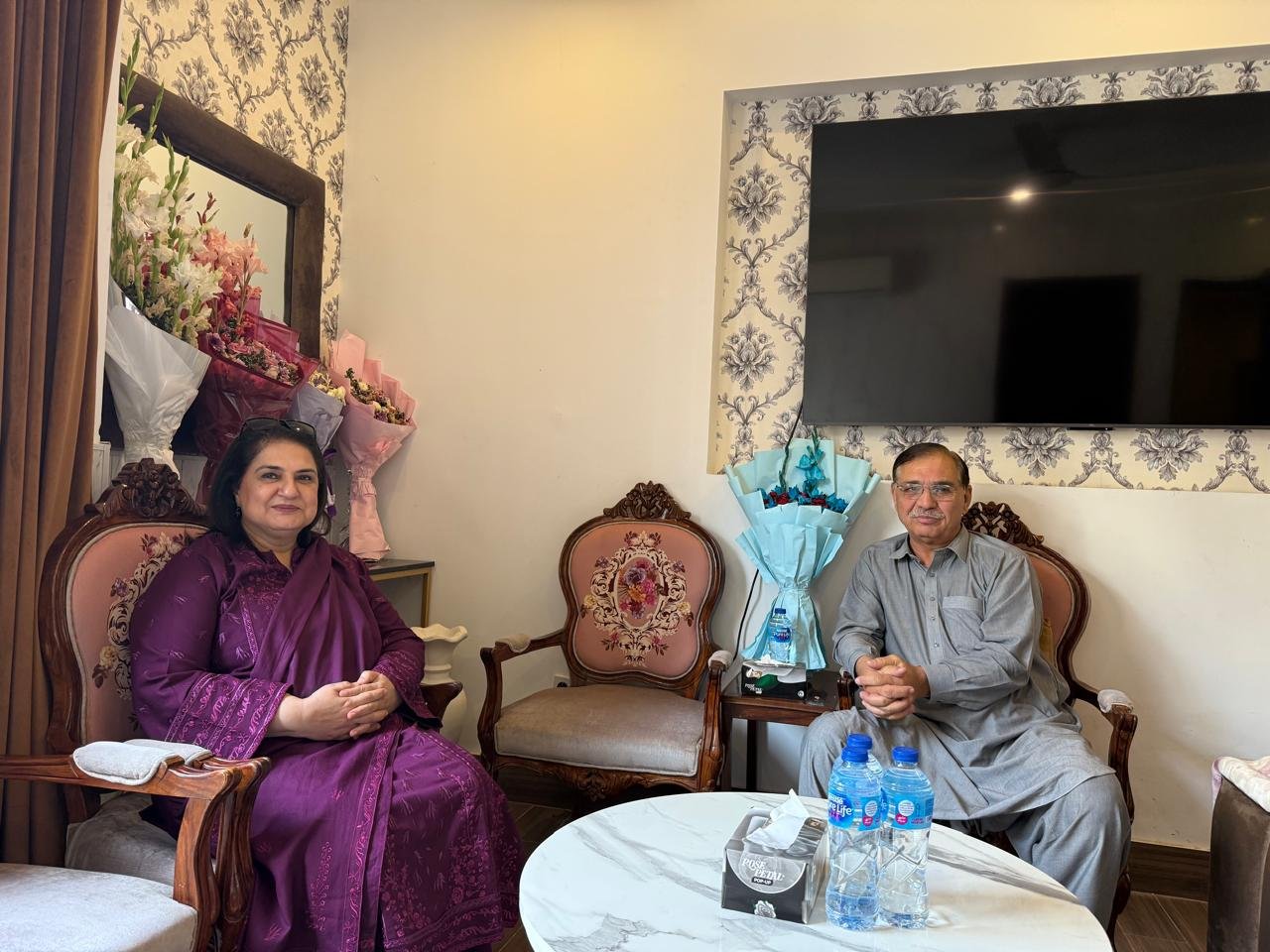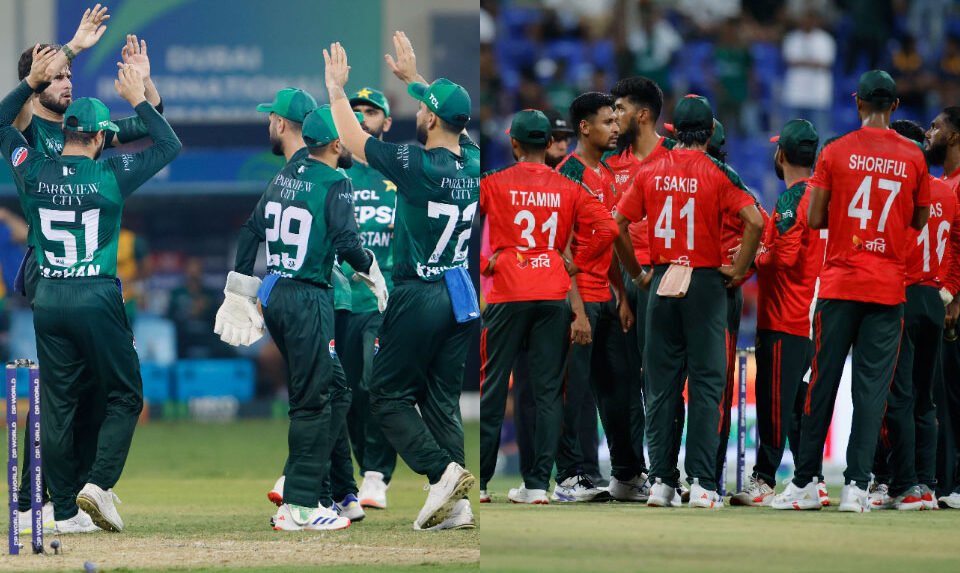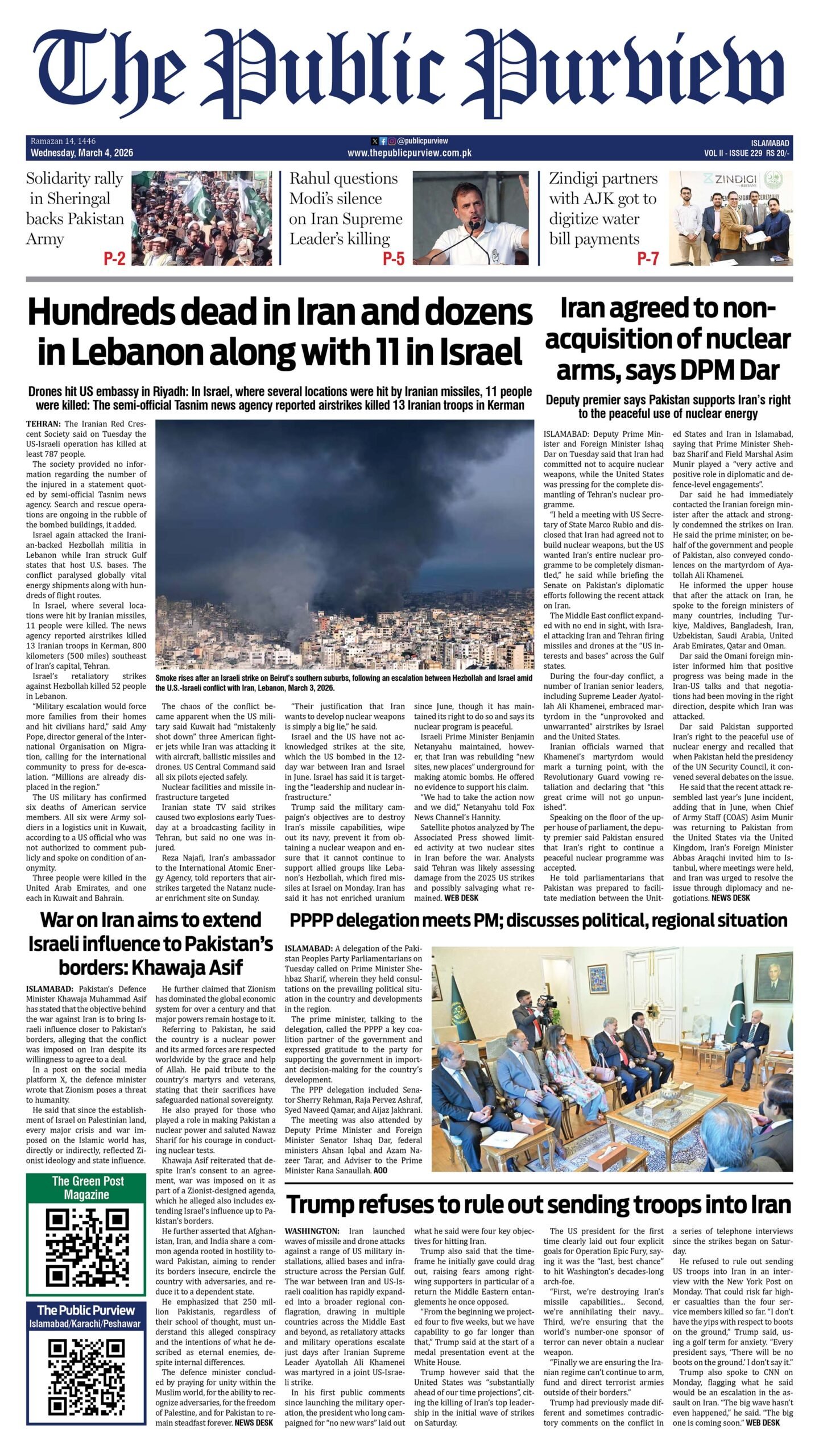CLAS hosted a Seminar titled ‘Pakistan’s Strategic Deterrence: Assessing the Effectiveness of Military Posturing in Preventing Indian Aggression Center for Law and Security (CLAS) hosted a seminar titled ‘Pakistan’s Strategic Deterrence: Assessing the Effectiveness of Military Posturing in Preventing Indian Aggression’ last day at TMUC Islamabad says a press release. The event featured a panel of distinguished experts who discussed the evolving nature of strategic deterrence, Pakistan’s national security imperatives, and the regional power dynamics shaping South Asia’s security architecture.
Air Commodore (Retd.) Khalid Banuri, former Director General of Arms Control and Disarmament Affairs at the Strategic Plans Division (SPD), highlighted the changing character of warfare, noting that the tempo and operational domains—particularly cyber and air power—have evolved. He underlined Pakistan’s strategic restraint during the recent conflict with India and affirmed confidence in Pakistan’s preparedness, stating that future conflicts would look fundamentally different due to technological and tactical advancements.
Dr. Adil Sultan, Dean of the Faculty of Aerospace and Strategic Studies (FASS) at Air University, emphasized that nuclear weapons are a national asset designed to deter large-scale wars. He noted that while nuclear capabilities serve as the ultimate deterrent, conventional and sub-conventional tools also play crucial roles. Dr. Sultan pointed out that Pakistan’s full-spectrum deterrence—articulated in 2011—remains relevant in preventing major conflict, especially given India’s greater economic resources and military spending.
Dr. Masood Khattak, Assistant Professor at the International Islamic University Islamabad, provided insight into India’s evolving posture and the global perception of South Asia’s security equation. He argued that India’s aspirations to be seen as a “net security provider” have been undermined by recent events, including the operational exposure of advanced systems like the S-400. Dr. Khattak also highlighted that Pakistan, despite asymmetric capabilities, managed to counter a broad spectrum of adversaries, including India, Israel, and other regional allies.
Mr. Rehman Azhar, Director of CLAS, moderated the session and opened with reflections on the rapidly shifting security environment. He drew parallels between recent conflicts, including those involving Pakistan and India, and the broader geopolitical tensions between Israel, Iran, and the United States, emphasizing the urgency of reassessing traditional security assumptions.
The panelists addressed questions related to future warfare, highlighting the growing role of cyber capabilities, electronic warfare, and misinformation campaigns. They stressed that air power, while central, would operate in conjunction with other domains, including media and digital influence. Dr. Sultan noted that technological integration, rather than mere possession of modern equipment, determines operational effectiveness. The panel agreed that despite aggressive posturing from India, the ground realities and Pakistan’s measured yet resolute response have restored a credible balance of deterrence.
Eminent discussant, Ambassador Abrar Hussain, Pakistan’s former envoy to Afghanistan and the Middle East, offered a diplomatic perspective. He emphasized that Pakistan’s measured response in recent conflicts, coupled with successful narrative building, enabled it to gain global recognition. He noted that Pakistan not only neutralized Indian military actions but also won the media and diplomatic war by presenting a credible and restrained posture.







 Today's E-Paper
Today's E-Paper